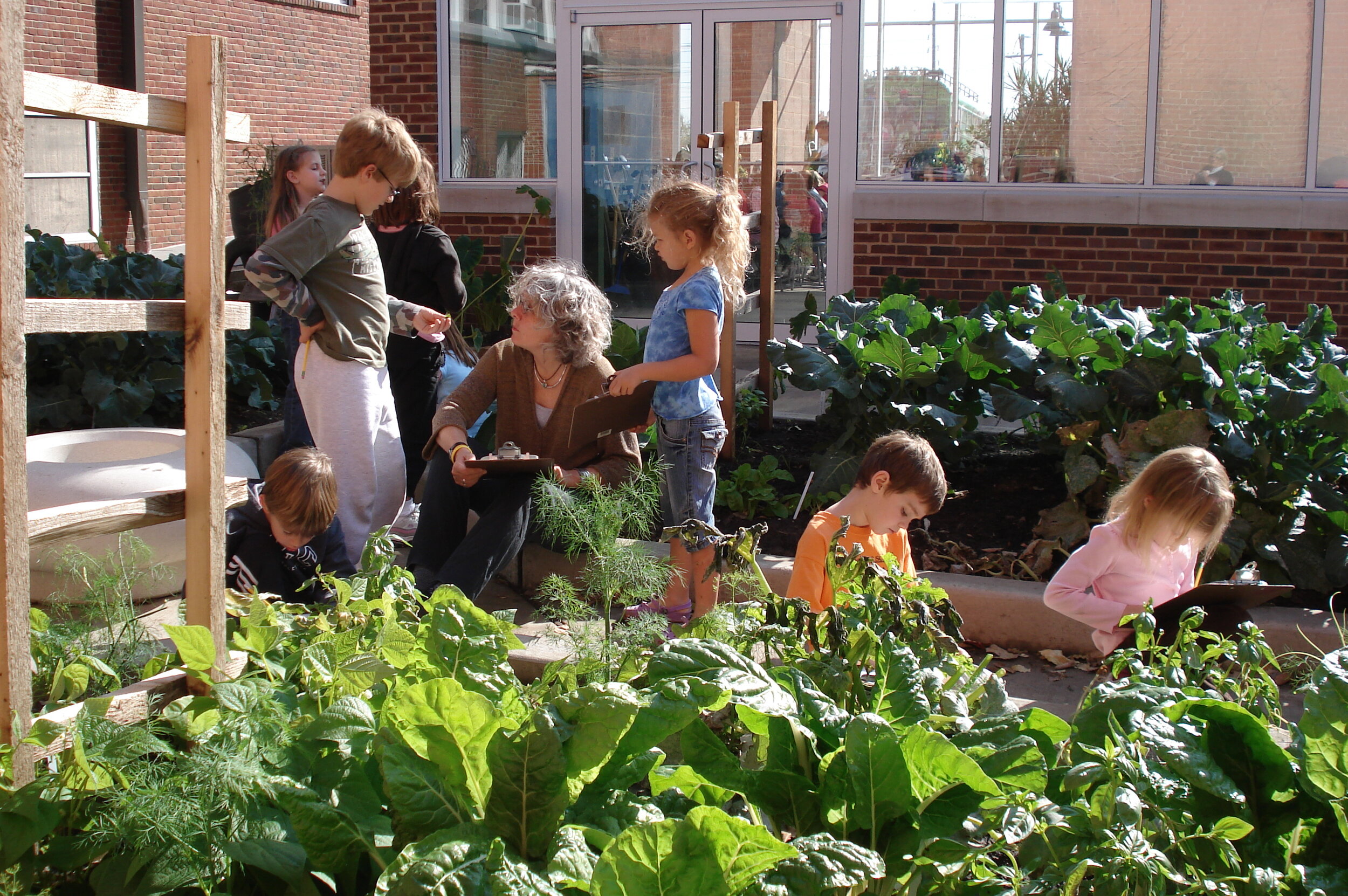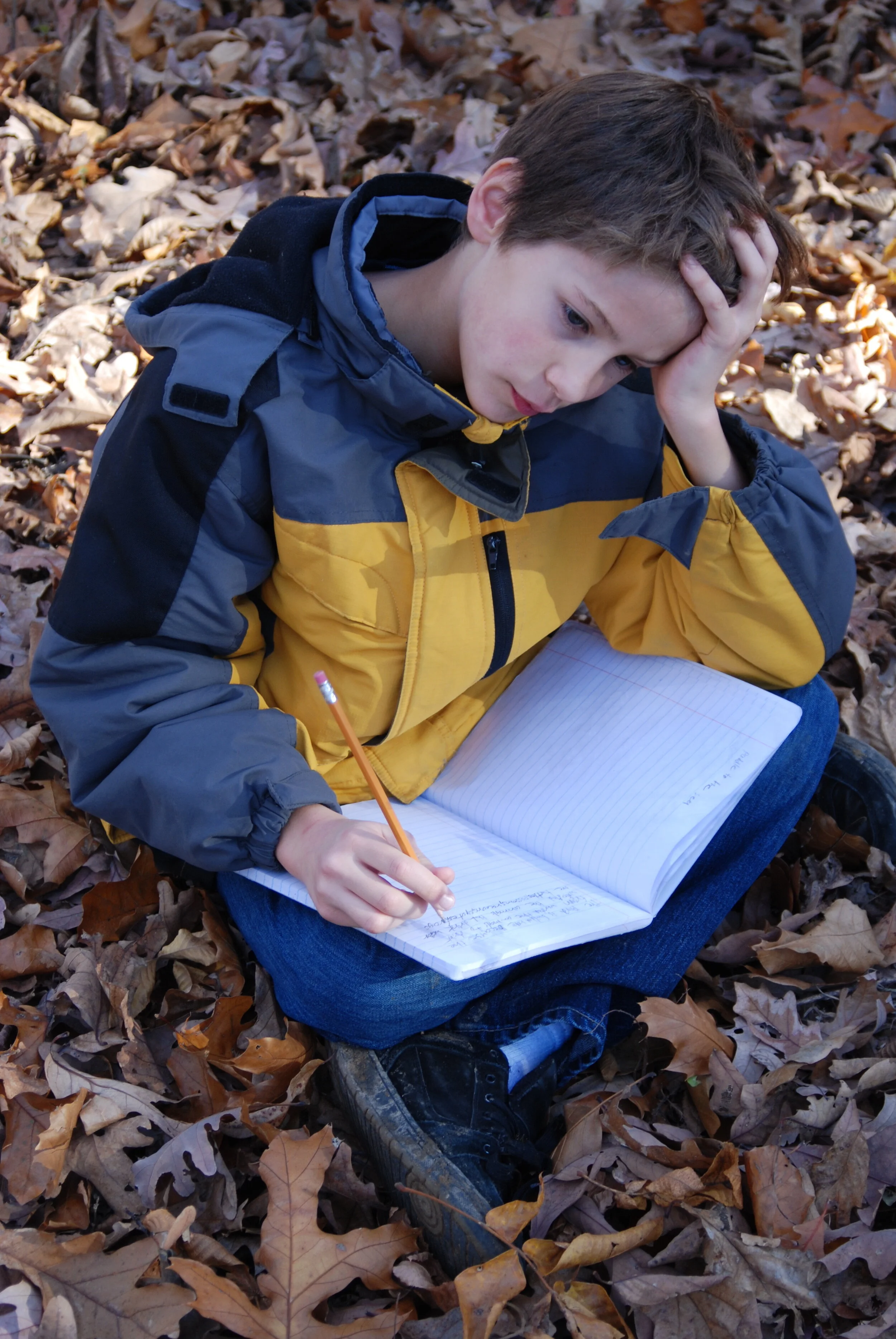A year ago (seems like an age ago) I (Ashley) flew from our Middlebury, Vermont home out to St. Louis, Missouri to give an address to the annual fund raising gala at my old school, The St. Michael School of Clayton (SMS). I was Head of School there for 16 years, and with mountains of collaboration we brought Reggio Emilia home there (and a lot of other progressive ideas). I thought it would be fun to reprise my presentation to the audience of St. Michael School parents as a blog post…particularly as it might inspire renewed spirit for innovation in education as we approach the New Normal. Here it is. Please remember, I am talking directly to parents; and the images I’ve chosen come from SMS, The College School (also in St. Louis, where Louise taught) and my family.
I trust that I’m preaching to the choir here…however, I’d still like to sing you a familiar tune; that it might remind you of why you are here.
The experience your children are having at The St. Michael School of Clayton is unique, powerful and lasting…Foundational.
I wish it wasn’t so unique — but in my 20 some years of consulting in schools around the country and Europe, that is my experience. I wish all schools were like The St. Michael School.
At The St. Michael School you have shifted the paradigms of
the image of the child
the role of the teachers
and the place for parents…and the community.
You understand that each child is born FULL: they are NOT empty vessels into which you pour knowledge. They are each unique souls filled with potential; filled with the capacity to discover, to construct learning.
Our strongest, most fundamental human instinct is to wonder and to learn. You embrace that.
Andrew Archie, the rector of The Church of St. Michael & St. George, had an ahah moment with both of his young sons in the school. One day he came up to me in the hallway and declared:
You know, your image of the child is congruent with my Episcopal faith.
You say the child is strong, rich, and capable.
We say, each child is born filled with God’s grace.
I repiled: PRAISE BE.
When you understand this about children, then through a lot of research and experience, you also come to understand that children learn differently — they manifest different learning styles; they have, as Howard Gardner has researched and validated, multiple intelligences; or, as our colleagues in Reggio Emilia say, they make sense of the world…of phenomena…through 100 languages…not just reading, writing and ‘rithmetic, but through using different materials in visual arts, through music and dance, through their emotional senses, through experimentation, and on and on….
Here’s a snapshot of what I mean from a few years ago. Jenny Morrison, with a group of 4th graders, posed the question: What are we made of? Among their many ideas was: cells. Jenny got out the microscopes and books. Students drew illustrations of what they found. On the playground Jenny found them lying on the ground creating a circle with their bodies, with several of them curled up in the circle. See Mrs. Morrison, we’ve made a cell with our bodies. Later, in the art studio, three of the boys were experimenting making shapes out of copper wire. Hey, Mr. Holohan, we can make 3D globes out of this wire, like CELLS. So, they all made models of cells out of wire with different found objects suspended inside representing different parts of the cell.
If this looks like FUN, it’s because it IS.
And, it’s WORK…GOOD WORK…instilled with an ethic of excellence.
Fundamentally, you also understand that learning happens in relationship — not as single isolated cells — but as interconnected beings. Learning occurs in relation to compatriots and peers, to teachers, to families, to the extended community. Learning happens collaboratively.
One April midmorning I was roaming the halls, checking in on different classrooms, when a group of third graders came pouring out of their classroom…on their way to get some fresh air, I think. They were all obviously upset. I stopped one boy.
Jimmy, what’s going on. Why are you all so upset.
Oh, Mr. Cadwell, you wouldn’t believe what they made us do!
No? What?
They made us take a TEST!
Really! And that made you upset?
Yeah, cuz they made us each do it by ourselves!
Oh?
Don’t they realize that if they let us do it together we’d get it ALL RIGHT!
Children learn to listen to each other, and to build ideas together.
(By the way…isn’t that the way the Real World works?)
In shifting the paradigm of the image of a child, you also shift the paradigm of the role of the teacher. The teacher is no longer simply the sage on the stage. Rather, the teacher is the mirror, the scaffold, the provoker, the challenger. The teacher listens, observes, records, questions, WAITS AND WONDERS. The teacher is a researcher.
This requires special converts. Professionals who see that beyond being an instructor in skills, they need to:
arrange their environments with well organized, sophisticated materials
create spaces that connect visually
manage the logistics of small and large group investigations and dialogue
plot and carry out thoughtful learning experiences, intradisciplinary experiences, taking the disciplines OUT of their traditional silos, and injecting them into a network of all the languages
Invite children into BIG QUESTIONS — questions that intersect with the most essential question of our time: What is INTERDEPENDENCE?
Guide students into work that contributes to the community
Encourage, cajole, and lead the students into an ethic of excellence
Make this learning visible…through reflective documentation
All so that students develop high levels of skillful communication, symbolic skills, and creativity.
So that students see systems, collaborate across boundaries, and create (versus just problem solve).
All what we like to call THINKING.
Which brings us from children and teachers to parents and the community. Parents are partners in this learning journey. Heaven knows…parenting is among the most challenging, mystifying, and rewarding thing we ever do as humans. Much has been written disparaging helicopter parents… morphed into snow plow parents…now, lawnmower parents.
At SMS you are welcome to be a partner. You are invited to be included in the BIG QUESTIONS that your child is asking. You’re asked to discover how you could be a resource for more learning experiences that relate to the question. You read the reflections of the teachers written on the web and on the walls. You look for ways in your busy life to be present — like you are tonight — to stand with your child in this community — to stand and dance with every child in this community.
You have all come to know your children in a new way. You know your children are full, filled with the desire to learn, to discover how the world works…and how it doesn’t.
You recognize that this perspective of children requires an environment that
Values relationships between children, teachers, parents and the extended community.
Challenges children with rich, thought provoking experiences,
And that responds to their ideas, theories and creativity in a way that compels them to go further, to ask the next question, to work harder, to make excellent work.
This is a vibrant learning community: a place, a network of people, a practice of education.
That compels us to give generously…and most importantly, to have fun and enjoy the ride.
I show you this sketch that I drew of SMS for a permit to build a playground in the front of the school. I could have taken a photo and photoshopped in the fence and the entry arch. But somehow, that would not have evoked the feeling behind the project. There is a convincing aesthetic to the drawing. It worked. We got the permit.
Now as I look at this sketch, I realize it represents for me my life’s work. This school has given my life meaning…as it has to so many others.
The poet Mary Oliver, in A Summer Day, writes of a transcendent experience she had in a field in summer, at one point she describes in exquisite detail her observations of a grasshopper. She calls the experience blessed. In the end she turns to you, the reader and asks:
Tell me, what is it you plan to do
with your one wild and precious life?
I’d say that you are answering that challenging, beautiful question…Here…Tonight…And every day at The St. Michael School.
You are making meaning of this life…together…with your most important partners in this journey…your children.
Bless you.
SO, ONWARD!
AND RAISE YOUR PADDLES,
WITH HEARTS FULL OF THANKSGIVING.















